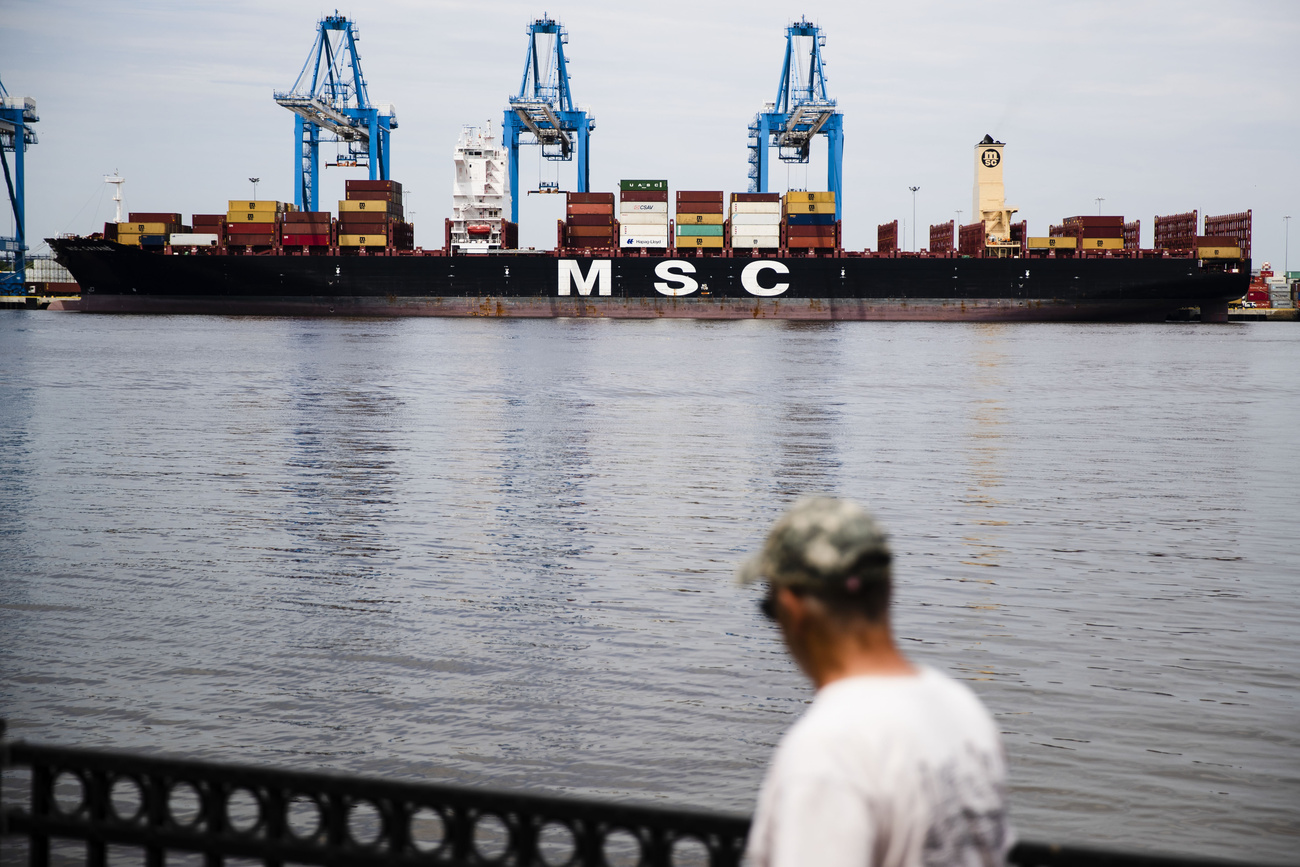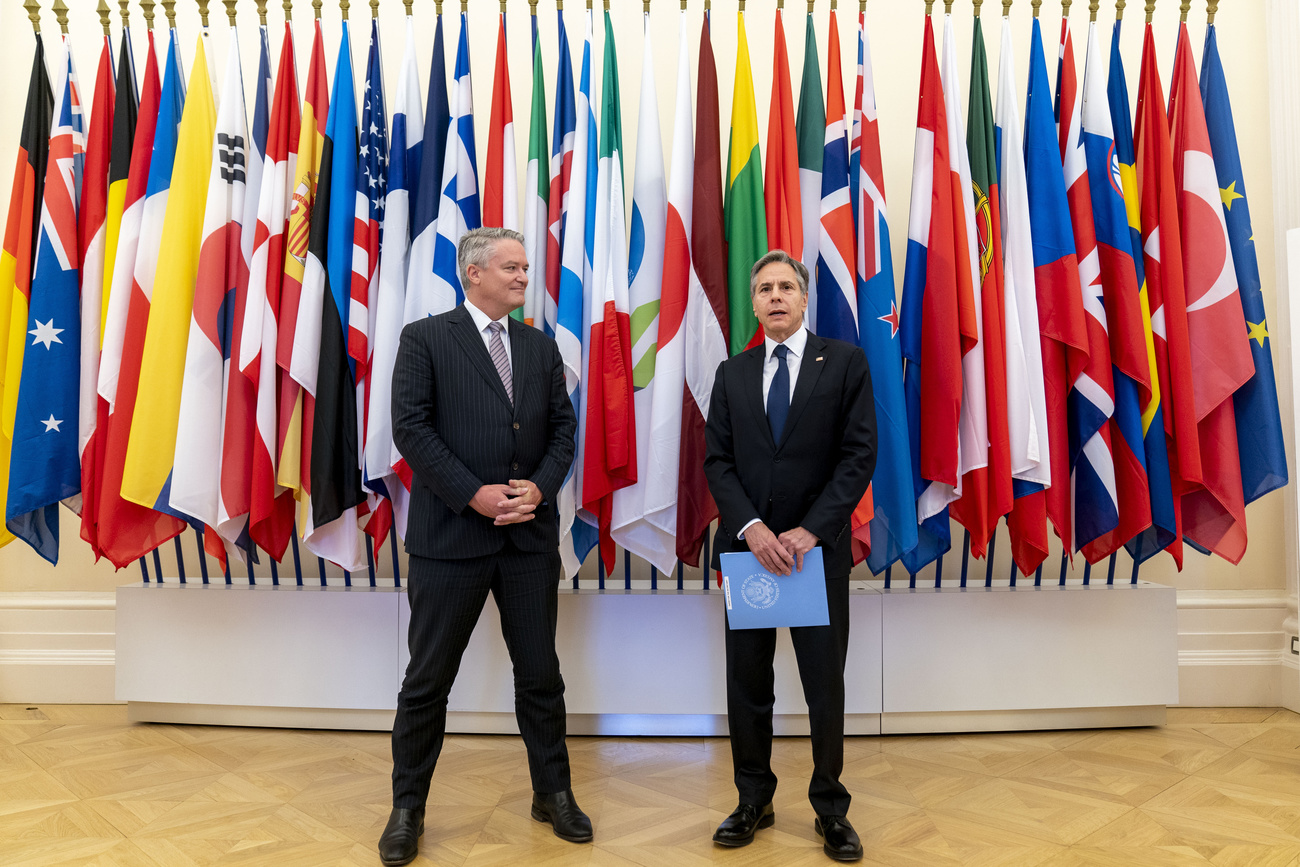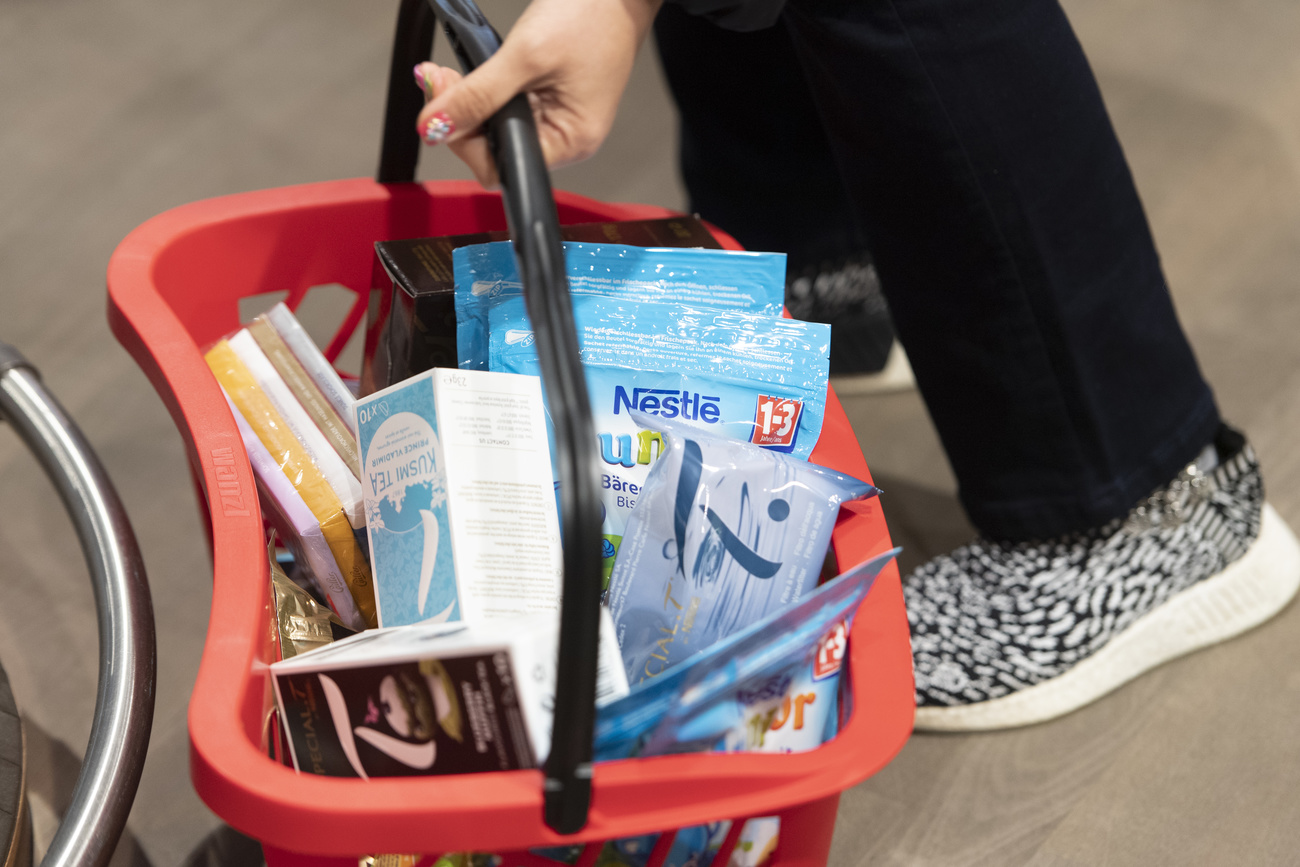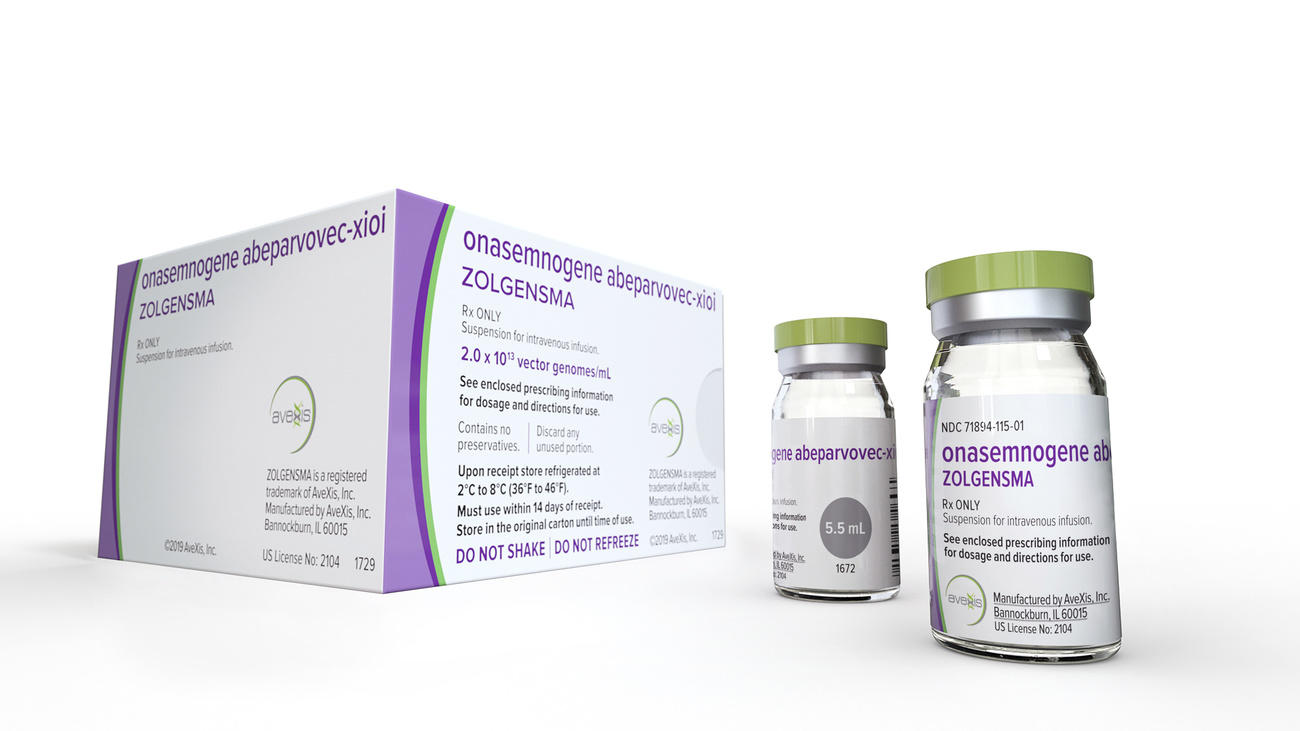When multinationals sell promises more than products
Big companies are using advertisements to sell more than just products these days. Are consumers buying it?
A couple weeks ago, I came across a print ad on the back of a magazine about the Lucerne Music Festival, featuring an image of a very large ear with a hearing aid cleverly overlayed onto a brass instrumentExternal link. Then I saw the Glencore logo and some text about the importance of zinc and the Swiss mining giant’s commitment to responsible mining of the raw material. Glencore isn’t trying to sell me zinc or a trumpet, of course. It wants me to buy its promise.
Such marketing tactics used to be reserved for brands selling chocolate bars or cleaning products but today, my Twitter feed is filled with corporate ads extolling sustainability. Philip Morris International splattered ads in the New York Times that don’t show a single product but instead talk about why we, the public, should trust the scienceExternal link on nicotine.
It isn’t just ads either. In June, the logos of Siemens, Roche and UBS in Switzerland were covered with rainbows on social media in solidarity with LGTBQI communities. Does it go too far? The debacle over the rainbow lights at the Munich football stadiumExternal link shows that these symbols matter but that they can’t be filled with hollow promises.
Companies may soon need to back up their promises with real substance. Last week, Reuters reported that some NGOs filed a false advertising complaintExternal link against Chevron with US authorities, claiming the small amount the oil giant spends on renewable energy didn’t jive with its ads touting its commitments on climate change.
Have you seen similar kinds of corporate ads? What do you make of them?
What else caught my eye?
The Swiss Attorney General opens probe into suspected bribery in Ecuador by someone in Geneva commodity trading circles. This comes after a former Gunvor employee pleaded guilty in a New York court to helping funnel millions to Ecuadorean officials in exchange for lucrative contracts with the state oil company. The Swiss probe is looking into whether potential offences were also committed under Swiss law. This wouldn’t be the first time for Gunvor or for other Geneva-based traders. It seems that justice departments are catching up on a business modelExternal link that has been riding a wave in some of the most corrupt countries writes the FT.
Switzerland supports global agreement on minimum corporate tax rate. The government said it had “major reservations” about the proposal but that it was still throwing its conditional support behind it, along with some 130 countries. It’s an unexpected move for a country that has used low tax rates to lure multinationals. The debate is far from over but this time, Switzerland seems to be in the majority.

More
‘Movie-plot’ cocaine case highlights shipping industry drug problem
Drug smuggling investigations are exposing the shipping industry’s poor oversight. The seizure of $1 billion in cocaine off the MSC Guyane in 2019 may have been the largest drug seizure in US history but it is far from an isolated case. According to UN experts the illicit drug trade has been on the rise and companies are ill equipped to deal with it. And, drug smuggling is far from the industry’s only problem, writes my colleague Dominique Soguel. More questions are now being raised about whether the Swiss government should have more oversight over the industry, given how many call Switzerland home.
Burmese rubies are making their way into Swiss jewellery. French language paper Le Temps reports that Switzerland imported an average of CHF24 million worth of gems from Myanmar every year since 2016 and it didn’t stop in 2021, despite the military coup. Gemstones are a main source of income for the militaryExternal link, raising questions about the ethics of companies that finance or source gems from the region. Many luxury brands say that they comply with laws and responsible sourcing standards, but NGOs argue that it’s impossible to avoid the military. Some brands like Piaget and Cartier stopped sourcing gems from the country. The news comes as Switzerland slaps new sanctions on the country.
Roche and Novartis both get nod from medical regulators this week. The US FDA granted emergency use authorisation to Roche’s Actemra to treat hospitalisedExternal link Covid-19 patients. And, earlier this week, Swissmedic granted preliminary approval to Novartis’ Zolgensma to treat spinal muscular atrophy. This is the most expensive single therapy ever. With the Swissmedic stamp, the public health office can begin negotiations on the price, which could get interesting given the challenges the company has faced convincing other governments to cover the cost.
Feedback or story tips? Send me a message: jessica.davis@swissinfo.ch
Thanks for reading

More
Switzerland backs landmark OECD corporate tax agreement

In compliance with the JTI standards
More: SWI swissinfo.ch certified by the Journalism Trust Initiative












Join the conversation!